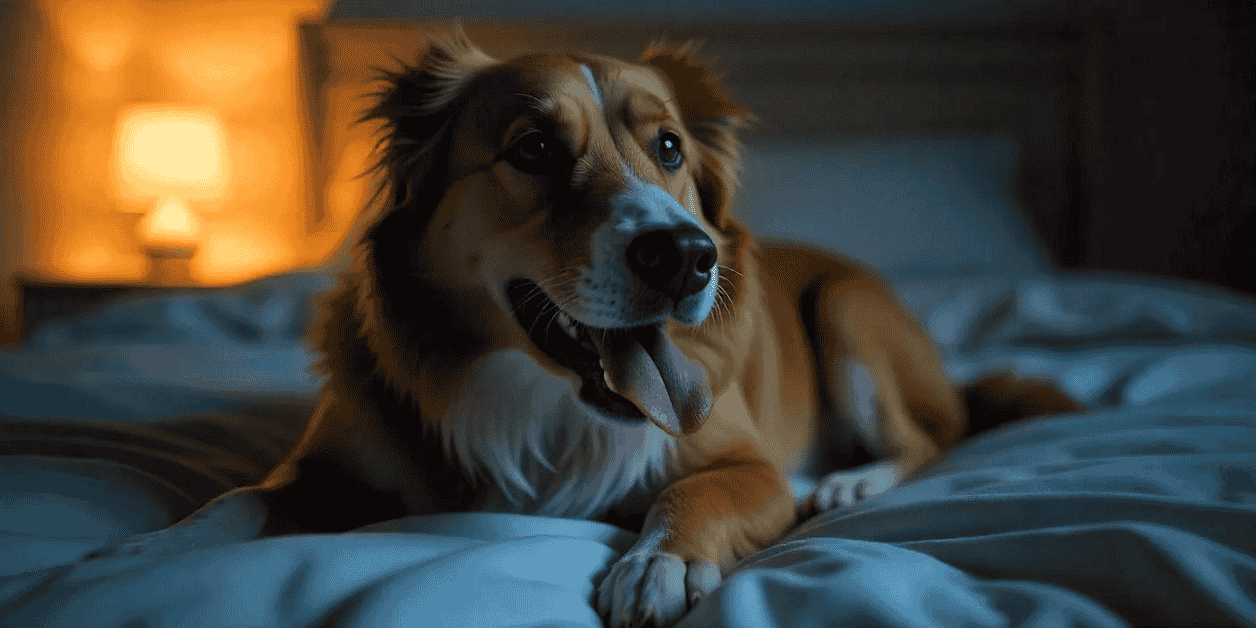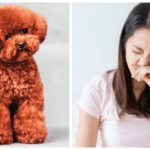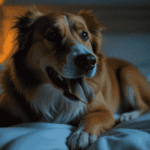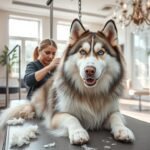As a dog owner, noticing your furry friend panting at night can be concerning. You may wonder, “Why does my dog pant at night?” This blog explores the various reasons dogs may exhibit this behavior and provides actionable insights for managing it effectively.
Understanding the underlying causes of nighttime panting will not only ease your worries but also enhance your dog’s quality of life.
What Is Dog Panting?
Definition of Panting in Dogs
Panting is a natural behavior in dogs. It’s a way for them to regulate their body temperature and express various emotions. When a dog pants, they breathe rapidly through their mouth, often accompanied by a slight opening of their jaws. While this behavior is typically normal, excessive panting can indicate underlying issues.
Normal vs. Excessive Panting
Panting is a natural behavior in dogs, serving as a way for them to regulate their body temperature and express various emotions. When a dog pants, they breathe rapidly through their mouth, often accompanied by a slight opening of their jaws.
While this behavior is typically normal, you might wonder, “why does my dog pant at night?” Excessive panting can indicate underlying issues that may need attention.
Why Do Dogs Pant at Night?
Common Causes of Nighttime Panting
There are several reasons why dogs pant at night. Understanding these causes can help you determine the best course of action.
Anxiety and Stress
Many dogs experience anxiety that can lead to nighttime panting. Changes in the environment, loud noises, or separation from their owner can trigger stress.
Health Issues
Conditions such as heart disease, respiratory problems, or pain may manifest as panting, especially at night. If your dog is panting without a clear reason, a veterinary visit may be necessary.
Temperature Regulation
Dogs pant to cool down. If your home is warm, your dog may be attempting to regulate their temperature at night.
Sleep Cycle Changes
Dogs go through different sleep stages, including REM sleep. During this phase, they may pant or exhibit other behaviors, such as twitching.
Environmental Factors
Certain environmental factors can exacerbate nighttime panting. Noise, temperature, and even the comfort of your dog’s sleeping area play significant roles. Being mindful of these factors can help alleviate discomfort.
Signs That Indicate Concern
When to Worry About Panting
While panting can be a normal behavior, there are signs that indicate it may be time to consult a veterinarian.
- Excessive Panting: If your dog is panting continuously for long periods, it may indicate an underlying issue.
- Accompanying Symptoms: Look for additional signs such as coughing, lethargy, or changes in appetite.
- Behavior Changes: If your dog suddenly starts panting more than usual, it may be a sign of discomfort or distress.
Table: Common Signs of Concern
| Sign | What It May Indicate |
|---|---|
| Excessive Panting | Anxiety, pain, or health issues |
| Coughing | Respiratory problems |
| Lethargy | Heart problems or fatigue |
| Changes in Appetite | Illness or discomfort |
| Restlessness | Stress or anxiety |
Dog Panting While Sleeping: Is It Normal?
Understanding Sleep Panting
Many pet owners notice their dog panting while sleeping. This behavior is generally normal, especially if it occurs during REM sleep. Just as humans may talk or move in their sleep, dogs may also exhibit various behaviors, including panting.
When to Be Concerned
If your dog is panting excessively while sleeping or seems distressed, it might indicate discomfort or anxiety. Observing your dog’s overall behavior and health can help you determine if a visit to the vet is necessary.
How to Help Your Dog
Creating a Comfortable Environment
If your dog pants at night, consider making changes to their sleeping environment:
Temperature Control
Ensure your home is at a comfortable temperature. Fans or air conditioning can help keep your dog cool.
Comfortable Bedding
Provide a cozy bed that supports your dog’s body. Orthopedic beds are great for older dogs.
Calming Aids
Consider using calming sprays, anxiety wraps, or soothing music to help your dog relax.
Managing Anxiety
If anxiety is a contributing factor, there are several strategies you can implement:
- Routine
- Establish a consistent daily routine to provide your dog with a sense of security.
- Exercise
- Regular exercise can help reduce anxiety and promote better sleep.
- Desensitization
- Gradually expose your dog to their anxiety triggers in a controlled manner to help them cope better.
When to Consult a Veterinarian
Signs It’s Time to Visit the Vet
While many cases of nighttime panting can be managed at home, some situations require professional attention. If you notice any of the following signs, it’s crucial to consult your veterinarian:
- Sudden onset of excessive panting
- Accompanying symptoms like coughing or lethargy
- Changes in appetite or behavior
- Persistent panting that disrupts sleep
Preparing for the Vet Visit
When you decide to consult a veterinarian, it’s helpful to come prepared. Keep track of your dog’s panting episodes, noting when they occur and any additional symptoms. This information can help your vet diagnose the issue more effectively.
Preventative Measures for Nighttime Panting
Lifestyle Changes
Implementing a few lifestyle changes can help minimize the chances of nighttime panting:
- Regular Exercise
- Ensure your dog gets enough physical activity during the day. A well-exercised dog is generally calmer at night.
- Mental Stimulation
- Engage your dog with puzzle toys or training sessions to keep their mind active and reduce anxiety.
- Consistent Schedule
- Stick to a consistent feeding and walking schedule to help your dog feel secure.
Regular Vet Check-Ups
Routine veterinary visits are essential for monitoring your dog’s health. Regular check-ups can catch underlying issues before they become serious problems.
FAQs
Dogs may pant at night due to anxiety, health issues, or temperature regulation.
Panting during sleep often occurs during REM sleep, but can also indicate discomfort.
Yes, but excessive panting may indicate an underlying health issue.
If accompanied by other symptoms or excessive, consult your veterinarian.
Create a calm environment, provide comfortable bedding, and address anxiety triggers.
Conclusion
In summary, understanding “why does my dog pant at night?” can alleviate your concerns and improve your dog’s quality of life. Nighttime panting can result from various factors, including anxiety, temperature regulation, and health issues.
By creating a comfortable environment and being proactive about your dog’s health, you can help them feel more at ease during the night. If you notice excessive panting or other concerning symptoms, consult your veterinarian for guidance.
Your attention and care will make a significant difference in your dog’s overall well-being.










